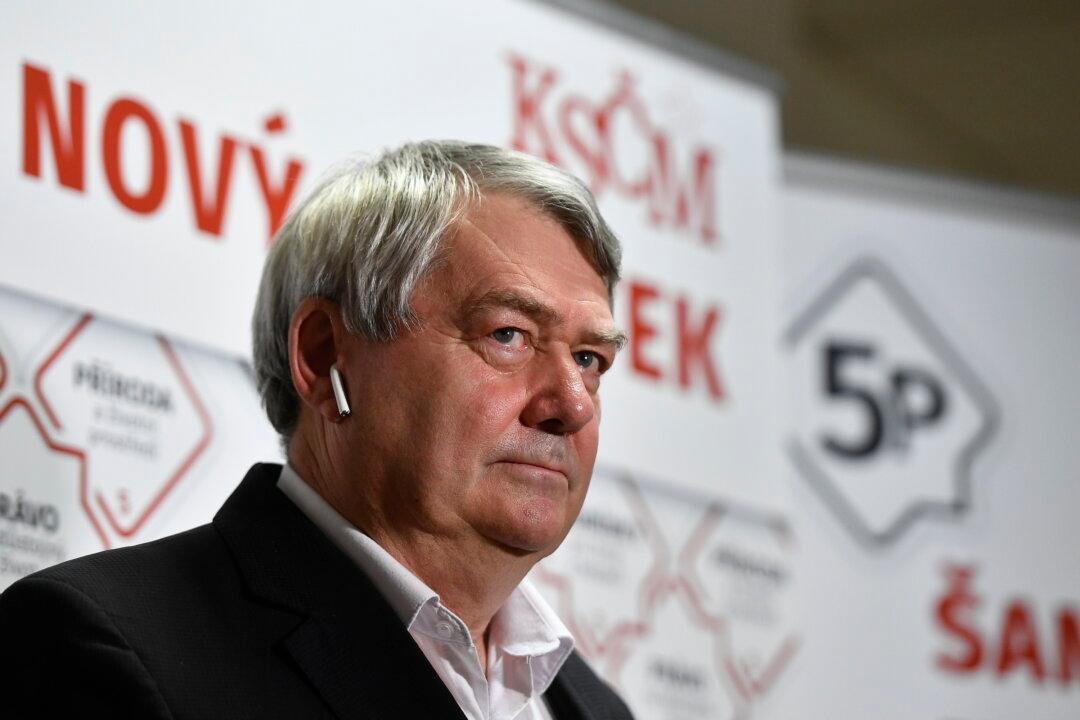On Oct. 9, Czech voters booted the communists out of Parliament for the first time since the end of World War II, voting out a party with Soviet-backed predecessors that ruled the central European nation with an iron fist from 1948 until 1989’s Velvet Revolution that ushered in democracy.
The Communist Party of Bohemia and Moravia (KSCM) failed to retain enough seats to enter the Czech Parliament for the first time since the formation of the Czech Republic after Czechoslovakia was peacefully dissolved into two nations in 1993, with the other state becoming Slovakia.




